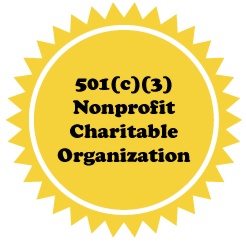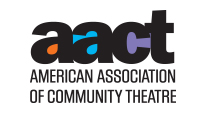Nonprofit Incorporation
 Being “501(c)(3)” means that a particular nonprofit organization has been approved by the Internal Revenue Service as a tax-exempt, charitable organization. “Charitable” is broadly defined as being established for purposes that are religious, educational, charitable, or literary, among other categories. In addition, an organization may may not attempt to influence legislation as a substantial part of its activities and it may not participate in any campaign activity for or against political candidates. (Click here for the full definition on the IRS website.)
Being “501(c)(3)” means that a particular nonprofit organization has been approved by the Internal Revenue Service as a tax-exempt, charitable organization. “Charitable” is broadly defined as being established for purposes that are religious, educational, charitable, or literary, among other categories. In addition, an organization may may not attempt to influence legislation as a substantial part of its activities and it may not participate in any campaign activity for or against political candidates. (Click here for the full definition on the IRS website.)
While 501(c)(3) organizations benefit from donations, individuals who make donations also benefit from donating to nonprofits in the way of tax donations. That’s a great incentive for people and businesses to lower their taxable income while supporting their favorite nonprofits.
1. Getting Started
Organizing a nonprofit organization should include a number of operational duties for the survival of the organization. At a minimum, these items should include developing a strategic plan, case statement, articles of incorporation, budget, and set of bylaws.
-
Check with your local state offices for business development to determine their requirements. Each state differs in their requirements. Often the contact is the state attorney general's office.
-
Check with the Federal IRS offices to file the necessary forms. You must first determine what type of entity classification you will use. Not all will have tax-exempt status. The most common form is the 501c3, tax exempt organization, organized for charitable purposes. If you have questions, consult an attorney after you have read the requirements of each option. IRS publication #557, Tax Exempt Status for Your Organization is very helpful. It explains the application procedures and forms required. (See below)
-
Depending on your organizing requirements, you may need to develop a set of bylaws to guide the operations of your organization, and a set of articles of incorporation. The bylaws are extremely important. They should provide instructions as to the selection, responsibilities, and continuance of board members, membership requirements, officers, deposits, committee structures, notices, and other personal and insurance questions as they relate to the operations of the specific nonprofit business
- AACT's Bylaws Information Page
- BoardSource on Applying for Tax Exemption
- For a detailed overview of the incorporation process, see the website of the Management Assistance Program for Nonprofits (MAP).
2. Non-profit status
Federal-United States (Internal Revenue Service): Charitable, religious, educational, scientific, literary, etc. organizations that meet the requirements of § 501(c)(3) are exempt from federal income tax. To be recognized as a Nonprofit Charitable Corporation under Section 501(C) of the US Internal Revenue Code, a corporation must file for an exemption. If you plan to apply for tax exempt status, you might want to start with the IRS website.
The terms "nonprofit" or "not-for-profit" are often used interchangeably, but they are not the same in the eyes of the Internal Revenue Service, which has set out guidelines for categorizing tax-exempt, non-profit, and not-for-profit organizations in the US.
The term "not-for-profit" is mentioned primarily in relation to deducting losses or expenses, and focuses on activities like hobbies, sports, or other recreation that is performed without the intention of earning money (like a knitting club). Since most community theatres charge admission, they demonstrate the intent to earn money, and are not generally considered not-for-profit entities by the IRS.
A non-profit, on the other hand, can be organized like a business, and is usually expected to earn a profit. That profit, however, cannot be used to the direct benefit of one or more members of the organization -- it must go directly toward supporting the mission of the organization. The IRS groups non-profits with charities, religious organizations, and private foundations together under IRC Section 501(c)3 - 6, and with political organizations in Section 527 as groups that may be considered tax-exempt if they meet certain criteria. A knitting guild, for example, that's set up to educate the public about knitting and to promote the businesses interests of those within the knitting industry, could be considered a non-profit.
For an in-depth look at the details of non-profit incorporation, we recommend Starting and Managing a Nonprofit Organization: A Legal Guide, by Bruce R. Hopkins. [John Wiley, publisher]
3. How to apply for recognition as a 501(c)(3) organization
- Download and fill out the appropriate forms:
- Publication 557: PDF Format: Application, Approval, and Appeal Procedures, Forms Required, Required Inclusions.
- Form 1023: Application for Recognition of Exemption Under Section 501(c)(3) of the Internal Revenue Code. Note: Effective July 1, 2016, the IRS user fee for Form 1023–EZ, Streamlined Application for Recognition of Exemption Under Section 501(c)(3) of the Internal Revenue Code, drops from $400 to $275.
- Form 1024: Application for Recognition of Exemption Under Section 501(a)
-
Filing Requirements
A description of the annual filing and disclosure requirements for charitable organizations. -
Private Foundations
Charitable organizations are considered private foundations unless they meet certain requirements. A brief explanation of these requirements and the effect of private foundation status when these requirements are not met. -
Unrelated Business Income Tax
Charitable organizations engaged in an unrelated trade or business are subject to the unrelated business income tax. -
Contributions
A brief description of the disclosure and substantiation requirements for contributions to charitable organizations -
Tax Information for Charitable Organizations
Helpful information, including explanatory information and forms that an organization may need to file with the IRS.




